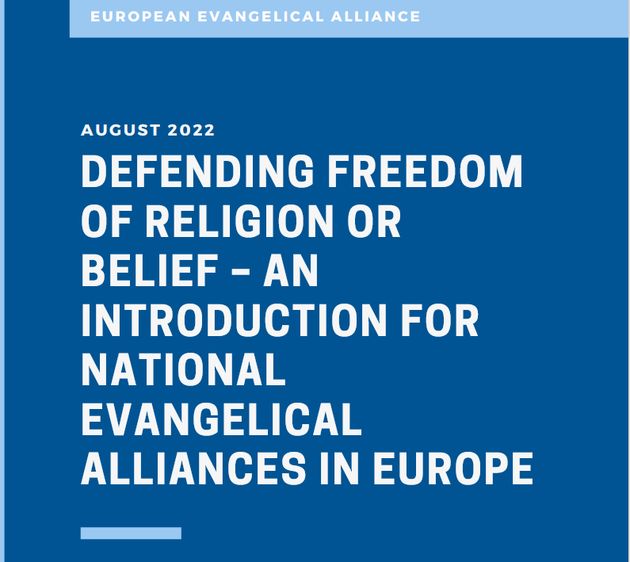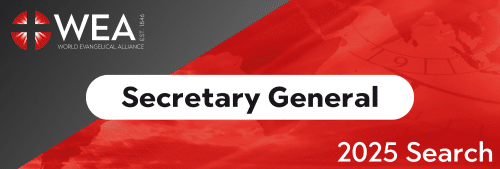The European Evangelical Alliance (EEA) recently launched the guide Defending Freedom of Religion or Belief: An introduction for National Evangelical Alliances in Europe.
Although it is mainly designed for national Alliances, “it is also relevant for all Christians who defend this vital human right”, says the EEA.
They explain that “it is a practical handbook, covering the essentials of what a national EA can do to defend freedom of religion or belief (FORB). It goes on to give ideas of more in depth options to help others and to strengthen support for this essential freedom”.
Action and prayer
The EEA points out that “some nations have a far deeper experience, past or present, of serious attacks on FoRB. The Christians there know what it means to stand in the Lord’s strength no matter the pressure”.
That is why “this guide focuses less on that faith reaction and more on what can be done more practically to defend FoRB when a problem arises and also to work proactively to try to avoid problems”.
“However, it cannot be emphasised enough that prayer and trust in the Lord go hand in hand with any advocacy. In the end, our greatest defence is the full armour of God. We are called to pray on all occasions and to keep speaking fearlessly of the hope we have in Jesus”, adds the EEA.
Essential FORB tasks
The guide outlines four levels of action for a better defence of religious freedom by alliances and Christians in general.
In the first one, the EEA recognises that “EA leaders are busy”, but emphasises that “it is vital that they know what to do if a major FoRB problem arises”.
“Even better than waiting for the FoRB crisis to arrive, why not think as a team what you can do to protect FoRB, even if your resources are stretched? “, says the guide.
In addition to preparation, for the EEA the other key task is a fluent communication between national Alliances and their members. They also suggest that “EAs may consider appointing a human rights and FORB point person”.

Cover of the guide. / EEA.
Strengthening FoRB defences
According to the EEA, the first step is knowing what is happening, gathering information from EA members.
It puts the example of some national Alliances that make reports with that information, which “go to the government, media, embassies, NGOs, EEA, the World Evangelical Alliance etc”.
The guide encourages alliances to “continuing to be bold” and “inspiring Christians not to stay quiet for, if we do not use our FoRB and freedom of expression rights, we may lose them”.
They also remind them that “Every 4.5 years, every nation goes before the United Nations Human Rights Council to have their human rights record assessed” and “the World Evangelical Alliance’s Geneva office is always keen to work with an EA to present a human rights report on their nation”.
Expanding FORB horizons
“FoRB is for everyone: for other Christian denominations, other faith and worldview communities in your nation and around the world. Defending the rights of others has nothing to do with approving of their beliefs. It is simply working to help them enjoy this precious human right “, stresses the guide.
That is why they highlight those national Alliances that “encourage collaboration between the FoRB organisations in their nation and work with them to promote the International Day of Prayer for the Persecuted Church (IDOP)”.
Furthermore, the EEA urges EAs “to find out how their nation handles faith based asylum claims and to speak up for fair procedures”.
A better way
The last part of the guide encourages European evangelicals to “influence the values of your nation”, and it wonders “Can Christians model and spread a better vision for how nations can be run? What can an EA do to promote these within the Church and in society? ”.
“The Bible is full of values that are essential for a healthy society where all can flourish. These include love, justice, purity, mercy, compassion, freedom, stewardship, the dignity and importance of work, truth and forgiveness”, concludes the EEA.
You can see the full guide here.





Stay Connected